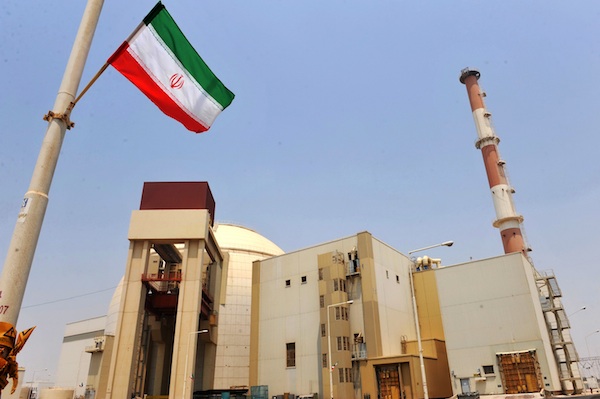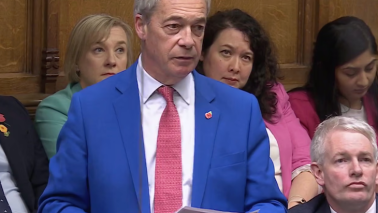Whether the United States is a force for global peace is not really up for debate in the self-described ‘indispensable nation’, though the question sharply divides opinion almost everywhere else. By focusing on America’s fixation with Iran, this short and angry book argues against.
The book’s polemic is built on good foundations: we are often told that Iran is a rogue nuclear state, yet it does not possess nuclear weapons. As a signatory to the NPT, the Non-Proliferation Treaty, Iran is entitled to a peaceful nuclear energy programme as long as it is monitored by UN inspectors.
However, ten years of negotiations aimed at persuading Iran to stop have led nowhere. The US permits Israel and India — which haven’t signed up to the NPT — to possess nuclear weapons, while Iran’s ‘inalienable right’ to uranium enrichment has incurred America’s wrath.
The authors quote Sir John Sawers, the MI6 chief and formerly in charge of the Iran file at the Foreign Office, as saying that ‘Washington would never tolerate the operation of even one centrifuge in Iran.’ So European Union negotiators have gone along with Washington’s hypocrisy. As has the UN, which has passed six resolutions against Iran, even though its monitored nuclear facilities do not cross the UN’s threshold of a ‘threat to the peace’.
US Intelligence, chastened into accuracy by failure in Iraq, reckons Iran halted its weapons programme back in 2003, while any attempt to enrich uranium to the required level for a nuclear device would surely set off UN inspectors’ alarm bells today. Unlikely anyway, because Iran’s Supreme Leader, Ayatollah Khamenei, issued a fatwa in 2005 outlawing atom bombs and repeatedly claims he doesn’t want them.
The book’s conclusion? That the US, Britain and Israel should be kicked out of the UN for unjustifiably threatening military force. And yet. Whom should we believe? Iran, the United States, or a plague on both? This polemic’s foundations wobble when placed under closer inspection themselves.
Tucked away is this sentence the authors would rather have avoided: ‘We concede that it is indeed possible that the Iranians are secretly pursuing a nuclear bomb.’ Oops. Iran kept its nuclear programme secret for 16 years and still denies inspectors access to Parchin, a military base southeast of Tehran. The authors’ attempt to excuse this secrecy as a by-product of American demonisation doesn’t wash.
Peter Oborne and David Morrison also make no distinction between President Obama and his ‘axis of evil’ predecessor. It was Obama who offered to ‘extend a hand’ to Iran in his first inauguration speech, twice writing to Khamenei himself. Yet Iran has continued to enrich in defiance of UN resolutions.
In 2009, MI6 revealed a clandestine uranium facility buried inside a mountain near the holy city of Qom. Which makes my mad dash amid almost 100 reporters filming ‘yellowcake’ conversion inside another plant at Isfahan two years earlier even more of a ludicrous parody of Iranian transparency than I knew it to be at the time.
The book points out that militant Sunni Islam threatens us more than Iran’s Shia tradition; what it does not say is that British officials feared an attack by an Iranian terrorist ‘sleeper cell’ on the 2012 Olympics by way of revenge for any Israeli air strike.
The authors berate the media for being ‘woefully negligent in presenting the Iranian point of view’. Can they please put in a good word for those of us begging for visas?
Yet in pointing out Iran’s right to enrichment, this book opens the way to a diplomatic breakthrough. Whitehall mandarins know it to be true, and that a nuclear Iran must be tolerated. John Kerry, the new US Secretary of State, seems to realise it too, quoted here on Iran’s ‘right to peaceful nuclear power’.
Sanctions, spying and sabotage may buy you time, but at some point soon that policy’s sell-by-date will expire. A ‘grand bargain’ must be struck by two sides sitting down together after 33 years of refusing to.






Comments